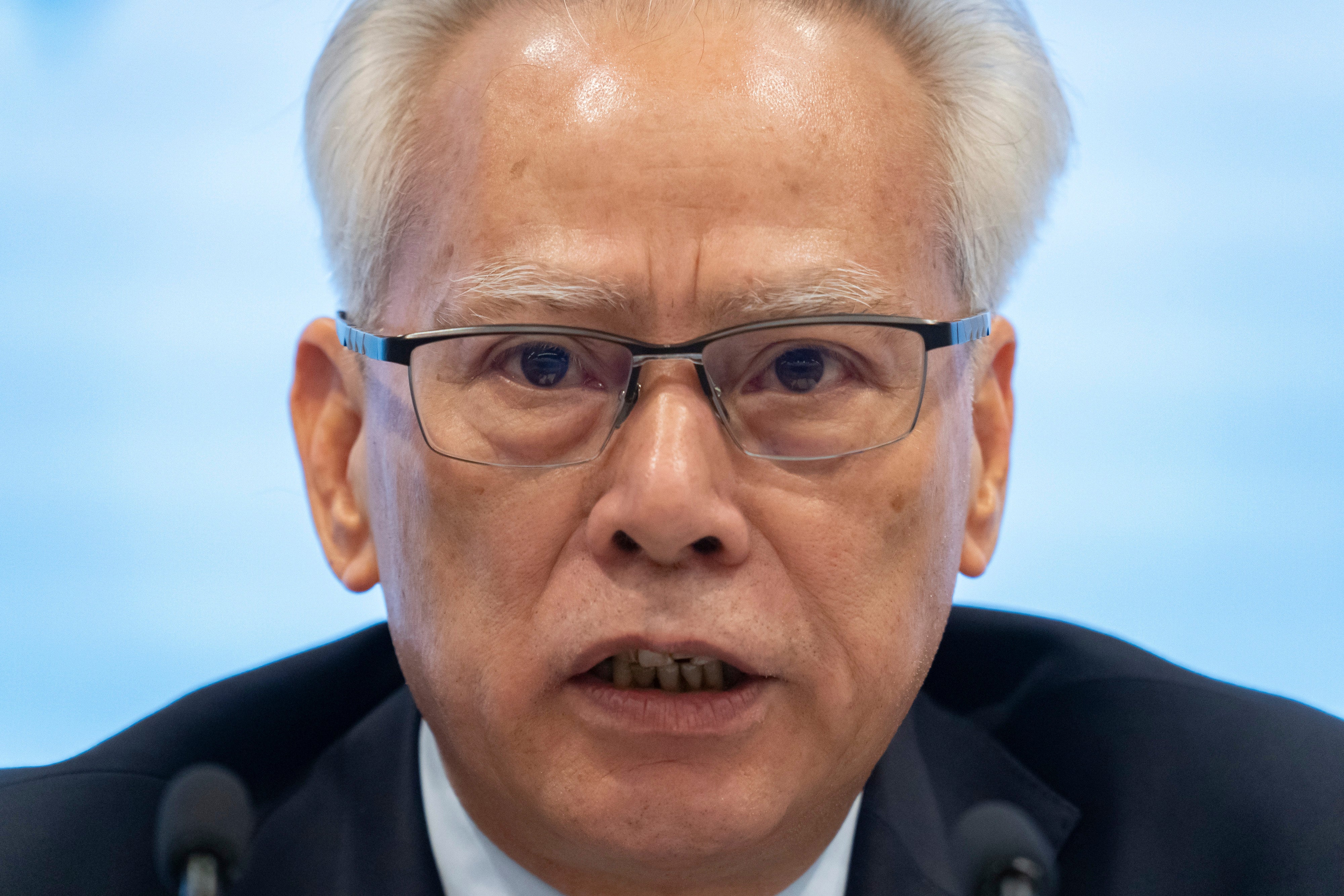Beijing loyalists will vote to endorse Macao's former top judge as next leader of the casino hub
About 400 Beijing loyalists will vote to endorse the sole candidate for the top job in the Chinese city of Macao in a largely ceremonial election that would make him the first leader of the casino hub to be born in mainland China

Your support helps us to tell the story
From reproductive rights to climate change to Big Tech, The Independent is on the ground when the story is developing. Whether it's investigating the financials of Elon Musk's pro-Trump PAC or producing our latest documentary, 'The A Word', which shines a light on the American women fighting for reproductive rights, we know how important it is to parse out the facts from the messaging.
At such a critical moment in US history, we need reporters on the ground. Your donation allows us to keep sending journalists to speak to both sides of the story.
The Independent is trusted by Americans across the entire political spectrum. And unlike many other quality news outlets, we choose not to lock Americans out of our reporting and analysis with paywalls. We believe quality journalism should be available to everyone, paid for by those who can afford it.
Your support makes all the difference.About 400 Beijing loyalists were set to vote Sunday to endorse the sole candidate for the top job in the Chinese city of Macao in a largely ceremonial election that would make him the first leader of the casino hub to be born in mainland China.
Former top judge Sam Hou Fai ’s expected victory within hours would be a departure from the long-standing custom of having chief executives who were born in the former Portuguese colony, typically from influential business families.
The shift in the city’s leadership to someone from the legal profession will create expectations of a declining influence from business circles, which critics have often accused of colluding with officials, analysts say. They anticipate Beijing’s policy agenda for the city will take priority.
Sam, 62, is widely seen to have Beijing’s blessings. He has already secured endorsements from 386 of the 400 election committee members who are to vote on Sunday.
Most of the territory’s 687,000 residents lack voting rights, leading to mixed sentiments about the election. Some hope Sam will heed public opinion and avoid prioritizing business interests, while others feel disconnected from an election process they can’t participate in.
Still, political observers said many residents are comfortable with Sam’s non-local origin in a city that has been home to migrants for decades.
With Sam’s victory guaranteed, the real challenges await in the governance hurdles that lie ahead.
Macao is the only place in China where casino gambling is legal. Beijing has called for the city to diversify its gambling-reliant economy.
Sam has promised to accelerate the current government’s plan to boost tourism and other sectors such as traditional Chinese medicine, finance, exhibitions and commerce. However, the city will still need to rely on the gambling industry for government revenues to support the city's welfare and accomplish other goals laid out by Beijing, analysts say.
China wants Macao to develop into a world-class tourism and leisure center and play a bigger role as a bridge for trade between China and Portuguese-speaking countries.
Small local businesses have been hurt by residents who spend money in the neighboring mainland city of Zhuhai, which offers a wider selection of items with good value for money. Chinese tourists are also now spending less than before.
It remains to be seen whether Sam, with a lack of government leadership experience, can form a capable cabinet to tackle these pressing issues.
Sam was born in neighboring Guangdong province in 1962. He graduated from the prestigious law school of Peking University in Beijing. He also studied the Portuguese language, culture and law at the University of Coimbra in Portugal, and once practiced law in mainland China.
When Macao returned to Chinese rule in 1999, Sam was appointed the city’s top judge, a role in which he served for nearly 25 years before resigning in August to participate in the election.
He handled some politically sensitive cases, including rejecting an appeal of a police ban on a vigil commemorating China’s bloody 1989 military crackdown on the Tiananmen Square pro-democracy protests. His court also upheld a decision to bar pro-democracy figures from running in the 2021 legislative elections.